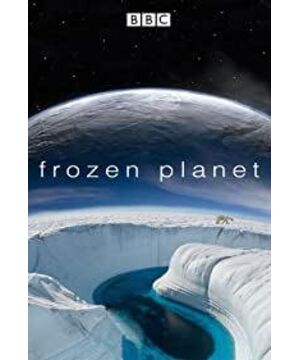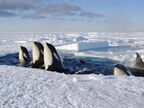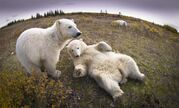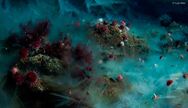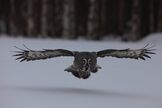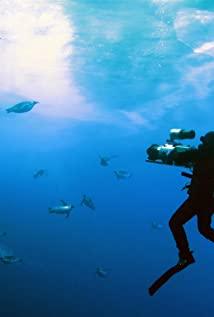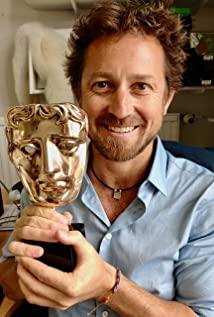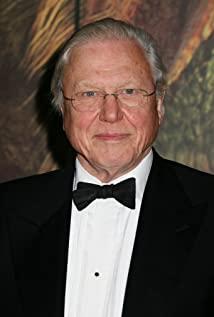02 Polar Spring
1. Life
Plants grow back on the snowfield, and caterpillars don't know where they came from, becoming the first life other than plants.
The birth, transition, and growth of life can sometimes be disgusting, physically disgusting, without emotional tendencies.
The first time I talked about the disgust of life was in the artwork "A Thousand Years", I said that the reproduction of life makes me disgusted. I thought that for other species, the reproduction of human life is disgusting, not to mention that this species is constantly expanding its own space and crowding out the living space of other species.
Speaking of the reproduction of other species, I have not seen the scene of the birth of a human baby, but countless people have constructed this event into a happy and wonderful thing to look forward to. I'm thinking, I subconsciously think that the birth of human beings is beautiful, but I see the birth of other species with my own eyes, why do I feel fear and nausea, even if it's just a physiological reaction, but why, do I also have it emotionally, if I also have emotions, does it mean that I am rejecting other species and feel disgusted by their birth, am I naturally resisting and competing, am I subconsciously anthropocentristic, and why do I not have this reaction to humans? , but for other species. Is it my self-identity as a human being at work, and what is the use of that identity, and that looks too bad.
But in expression, what I deeply agree with is the opposite. Every day I look at what is happening in front of me, and I feel that there is no need for human beings to continue to exist. Let’s perish soon, but I will be sad when faced with the death of other species, and I don’t want them to die and disappear. I treat humans so differently from other species when it comes to life and death.
2. Natural
The most shocking thing is seeing with my own eyes in the documentary the constant changes of all things, the movement of ice sheets, the disappearance of life, and the reappearance of life. I think the same is true of human beings, unable to fight against nature, we are no different from many other species.
We have countless works reflecting on how humans and nature, and other species, should survive. There must be reflections that humans have caused the extinction of countless species. When we start to master technology, we become inflated from our small self, we "conquer nature", and then after countless natural disasters come, human beings are unable to resist, or because of nature's care and grace, human beings can survive, only then can we survive. Started "awe of nature" and "love of nature".
03 Polar Summer
After watching this episode and looking back at the title, I feel that the title is so appropriate, and the first episode is also really about "Spring". Compared with the first episode, the vitality of this episode is more vigorous.
The most intuitive is the one mentioned by Ah Xing. Humans should have long since looked at other species to see how they can use their unique and beyond human wisdom to continue the life of the entire species. I seldom see a species and group mutilating each other, even for competition, and selecting carnivores that can lead the group to survive rarely mutilate the same kind for no reason. But human beings will. Humans are hurting their own kind and other species. In a very cruel way, wars and disasters are caused by humans, because of stupidity and selfishness. Anyway, what do we do? Pursue higher GDP and make more money? How can we live better. As long as this world, this time and space exists, human suffering will always exist.
The other one is very pure - I'm moved by the landscape, whether it's animate or not, whether it's related to humans or not, I'm moved by these species. Sometimes we don’t hate human beings so much, and our wishful thinking is sometimes very moving, such as the photographers and directors behind the camera, whose inner fluctuations are never smaller than ours, they are willing to spend time exploring these and talking to the unknown world , Talk to yourself, who can tell. Perhaps only when these huge natural wonders fall in front of us can we realize our own insignificance, and we can truly treat other species as equals and love nature.
04 Polar Autumn
The baby bird learns to fly from a 150-meter-high cliff, and if it fails, it will fall into the fox's mouth. The polar bear found the dead fin whale carcass with its extraordinary sense of smell. In fact, it hurts a little to see these pictures of the weak and the strong. This should be a kind of empathy, because I don't want to be treated like this, so I feel that the other party doesn't want to be treated like this. If there is any difference between human beings, it is probably the fear of death. We will also mourn and bear the corpse of other species when facing the corpse of other species. We are no different from these predatory animals, we also feed on other animals, but we have invented something else - killing to excess, Buddhist vegetarianism, and empathy for children who grieve over animal corpses. Bury the animal, knowing that the sashimi was cut or cut will refuse to eat it.
Only one penguin can be fed, and I think here too. But maybe, that's what makes the species better off.
The other is the relationship between nature and species. Nature is constantly changing, and all things have to adapt and survive.
05 Polar Winter
The most important thing about this episode is how animals on both ends of the planet have survived and survived the long winter. Would like to share the following points:
The polar bear digs through the soft snow and begins to hibernate, and the mother bear gives birth to the baby polar bear in the sleepy eyes, and then takes care of it to grow up and spend the whole winter. This kind of reproduction, animal motherhood, shows a lot in this film. In fact, I thought that these are important parts for humans to understand animals, because this part also exists in the human race. But sometimes we may impose human moral laws on animals too much, such as emperor penguins robbing little penguins whose mothers are separated from each other. We will inevitably use human morality to guess and evaluate.
The survival gamble of white downy ducks is very shocking to me. They are determined to die or live. The probability of this is only 50%, which is completely gambling. Although they have tried to struggle as the polynyas are getting smaller and smaller, the gesture of daring to confront the calmness of nature also moved me very much.
My whole heart was shaking when the ice crystals started tearing apart the cells in the plant. The power of nature is too powerful. At the back of this part, there is also a deep-sea shot. The icicles fall to the bottom of the sea and quickly freeze the creatures on the bottom of the sea, and then the ice floes take them away and get trapped in the ice below the sea level. I think this is simply a natural disaster , is the end of Pompeii. I remembered the part of the dialogue with Socrates about environmental ethics. At the end, there was a philosophical question that said, do you think nature has a special essence? Threatening or mediocre? When I see the ice crystals and think that nature has ended the life it created like this, I feel very sad.
When the wolves were chasing the cattle, I was most moved by the behavior of the female wolf. The male wolf gave up, but the desperate female wolf was still fighting, covered in blood.
When emperor penguins jump out of the water, like you know winter is over. Mom and dad penguin change shifts to take care of the baby. This picture is very warm. But when it comes to fighting for, kidnapping, and kidnapping the little penguins who have been separated from their parents, it hurts me a lot. But in fact, humans do too, it's just that we hide it with morality and shame.
View more about Frozen Planet reviews


